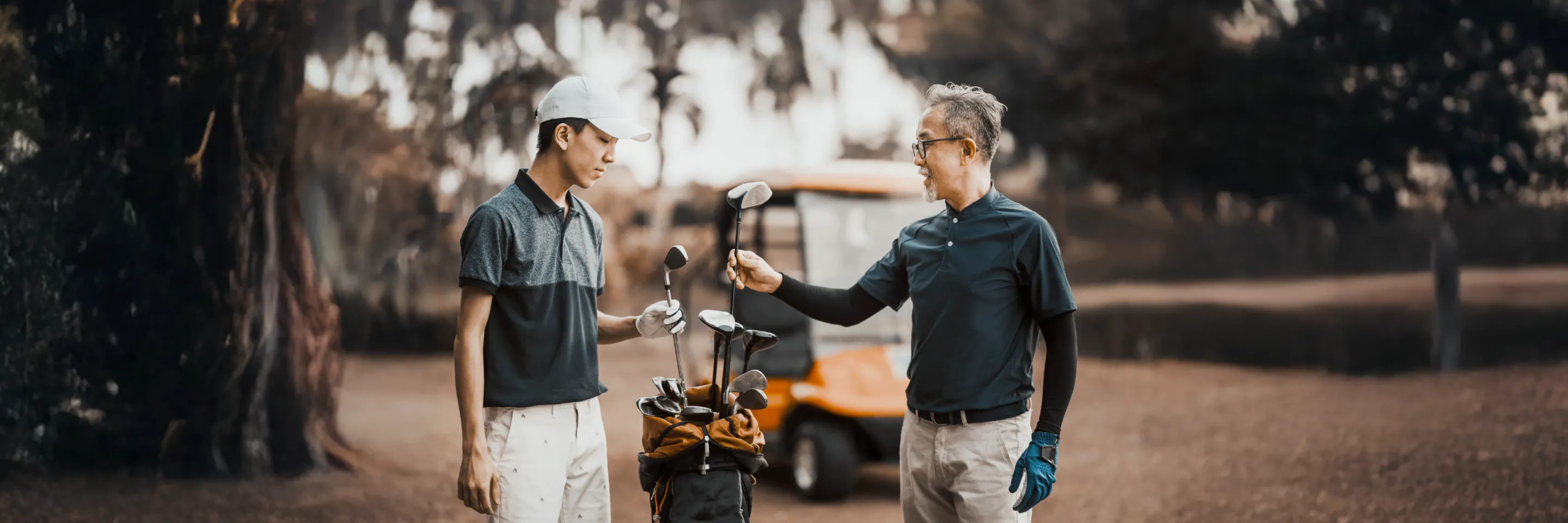
Mental agility: Keep your mind sharp at any age
Daily Philippine adult life can feel like an obstacle course, juggling work, home and the pop quiz challenges of city life -- economics, weather, traffic. Just as well, then, that our brains fluidly multitask, switch gears and roll with life’s punches. It’s that precious mental ability called mental agility.
But for how long? Of all the worries of aging, mental slowdown cuts deep. Our many goals and dreams for our loved one’s demand that we stay at our mental peak as long as possible.
Is it ‘senior-moment,’ brain fog, or dementia?
If you’re a certified Tito or Tita of Manila, you may already find all-nighters harder to recover from, or that your glasses and keys are always missing. As we age, it’s normal to see slow changes throughout the brain. Parts of our brains shrink, neural circuits slow and sputter, blood flow to the brain may decrease and brain inflammation (due to injury or disease) may increase.
This happens to us all. But we can all get an early start to improve our neuroplasticity, the brain’s ability
to change and rewire itself. Even old dogs can teach themselves new tricks!
One thing that’s not actually age-related, though, is “brain fog”. This is not a medical diagnosis, but a consequence of many possible causes. You feel consistently slower than your usual self (“always buffering”, as some call it), unable to concentrate or complete even simple tasks. Brain fog is often temporary, after illness or giving birth, and may clear up with proper sleep, exercise, and diet. But it can also be rooted in chronic stress, grief or trauma, or a symptom of undiagnosed health issues like diabetes. If the fog persists longer than a few months, it’s a sign for a checkup.
Forgetfulness can be a normal part of aging, but dementia is not. Dementia includes the loss of cognitive functions––thinking, remembering, learning, and reasoning––to an extent that affects quality of life and prevents independent living. Alzheimer’s is one form of dementia, but there are other forms that require different treatment.
Keep your brain younger, longer
Experts have a few tips to keep our brains at attention:
- Physical Health: Like any other system, the brain and body work together. Optimum physical health translates to a sharp, agile brain, while healthy blood pressure, cholesterol and blood sugar all lower dementia risk. This early, we can also take full advantage of nature’s “seven doctors”:

Dr. Sun: Just 10-15 minutes daily can soak up vitamin D to slow age-related cognitive decline.
Dr. Water: A glass an hour. Our brain is 75% water, and hydration keeps the neurotransmitters humming.
Dr. Air: Learn proper breathing techniques and practice daily. Oxygen in the brain enhances mental clarity, focus, concentration and memory. It’s one reason we feel so good at the beach, where the ocean creates a huge supply of oxygen.
Dr. Sleep: At least 7-8 hours’ RESTFUL daily sleep (other doctors recommend that you find the specific number of hours that works for your body) helps maintain attention, learning, and memory.
Dr. Exercise: Exercise brings oxygen and blood to the brain, releasing “happy hormones” like endorphins and serotonin. It also stimulates new brain cell growth, improves, and cuts dementia risk up to 30%. Exercise also helps improve sleep, and reduces stress, anxiety, and depression. Aim for 75–150 minutes’ exercise weekly, whether moderate walking or biking or higher-intensity running, swimming, or aerobics.

Dr. Diet: Just as there’s no one cause for mental decline, there’s no one almighty brain food. Nutritionists advise us to keep a healthy diet pattern, one that avoids saturated or trans fats, packaged or fast food, and chemically-processed or genetically modified food. Here are some of the most recommended “brain food”:
- Leafy greens like kangkong, malunggay, dahong sili and alugbati are easy to find and packed with brain-boosting nutrients like vitamin K, lutein, folate, and beta carotene.
- Fatty fish.Bangus, galunggong, tuna, sardines and tamban (herring) are rich in omega-3 fatty acids, which may help lower Alzheimer's risk. Aim to eat fish twice a week, or get your omega-3s from avocados, pili nuts, flaxseeds, or talk to your doctor about supplements.
- Berries and fruits.Strawberries, blueberries, mangosteen, duhat, and bignay are rich in flavonoids, linked to better memory.
- Tea and coffee. The caffeine in our morning cup can also boost memory and focus.
- The internet may suggest walnuts -- but peanuts, cashews and pili are more affordable sources for protein and healthy fats for your brain and heart.
Dr. Energy: Nature really does heal. Visit your nearest green patch for forest bathing time, or just connect with the earth by walking barefoot in your home garden. Fresh air raises our levels of serotonin, the brain chemical that helps relieve stress and boost energy. Nature also acts as a restorative environment for our minds, a break for our brains to rest, recover, and recharge.
Bonus tip: Detox. The gut-brain axis is real. Our brains run on enzymes that are made in the colon, which is also the body’s main detox channel. Probiotic-rich food (atsara, kimchi, yogurt, miso) and good old Yakult and taho help keep our guts balanced and brains sharp.
- Be a student again. Stay curious. Learning a new skill, craft or hobby puts our brain back on learning mode. Do things just because they interest you, no need to compete or be “good enough” for others. Question what you hear. Look for evidence, weigh different viewpoints, get into discussions. Reframe setbacks or disappointments as something to learn from. Traveling, volunteering, or attending community events will broaden your perspective and enhance your critical thinking.

- Solve problems -- puzzles, escape rooms, maybe even gaming. There’s no proof that so-called “brain gym” programs work, but they do keep our brains active. Whether crosswords, sudoku or Wordle, many of us find quick daily puzzles a great morning ritual. And while more research is needed, a recent study discovered that gamers who played a single game for five or more hours a week performed cognitively like non-gamers who are 13.7 years younger.
- Be mindful. Mental agility is awareness as well as speed. Meditation, journaling, or simply taking time to reflect on your day and its meaning can lead to clearer, smarter decision-making.
- Stay informed of different perspectives: We see many older adults become fixed and rigid in their opinions, as if the world stopped when they retired. Follow a mix of news sources, podcasts, and social media accounts. Being well-informed keeps your mind agile and ready to adapt to new information.

Brain Care is Self-Care
Brain care is part of #selflove and #selfcare, less understood than traditional health care but just as important. When we don’t feel like ourselves, it affects our mental health.
Talking about it can help. Fortunately, FWD The One for mental wellbeing is a customizable plan that includes life protection and coverage for critical illnesses related to mental health, such as cerebral aneurysm, chronic lung disease, and cancer. You’ll also receive a one-year subscription to ThoughtFull, a digital mental health provider. All for as low as P330 per year on the FWD Online Shop.
Now’s the time. Take your first steps now for mental health and agility -- and watch it transform your approach to life, learning, and everything in between.




